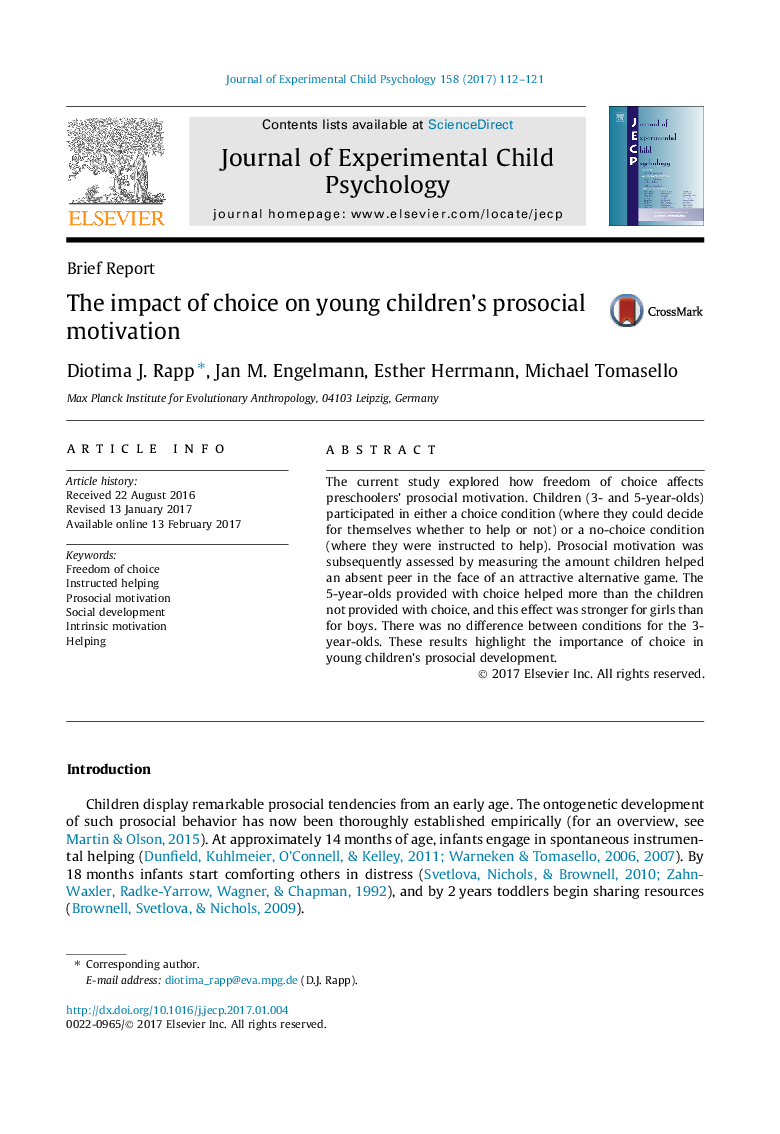| Article ID | Journal | Published Year | Pages | File Type |
|---|---|---|---|---|
| 5040023 | Journal of Experimental Child Psychology | 2017 | 10 Pages |
â¢This study directly compares young children's motivation for instructed versus freely chosen prosocial actions.â¢Results suggests that freedom of choice increases 5-year-old children's prosocial behavior, with stronger effects for girls.â¢In contrast, the provision of choice had no effect on 3-year-old children's prosocial behavior.
The current study explored how freedom of choice affects preschoolers' prosocial motivation. Children (3- and 5-year-olds) participated in either a choice condition (where they could decide for themselves whether to help or not) or a no-choice condition (where they were instructed to help). Prosocial motivation was subsequently assessed by measuring the amount children helped an absent peer in the face of an attractive alternative game. The 5-year-olds provided with choice helped more than the children not provided with choice, and this effect was stronger for girls than for boys. There was no difference between conditions for the 3-year-olds. These results highlight the importance of choice in young children's prosocial development.
